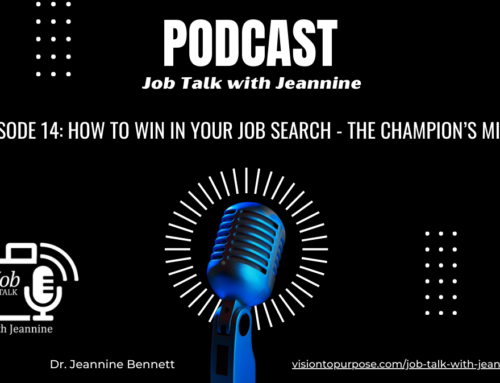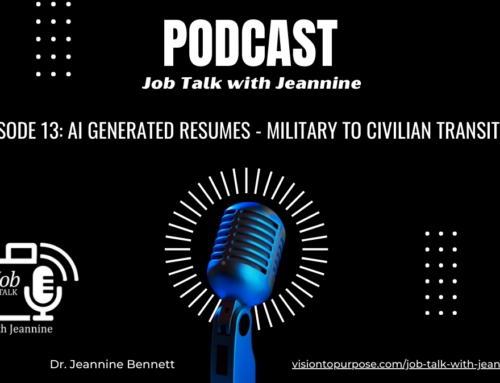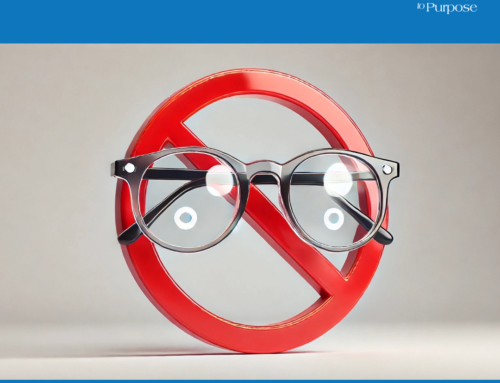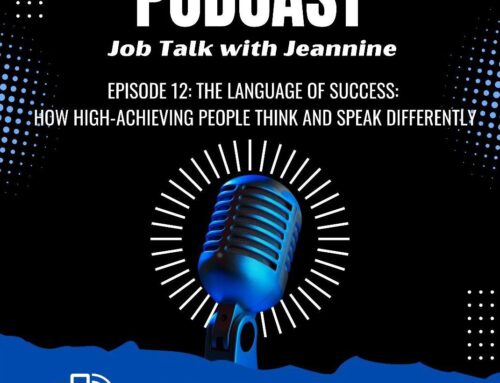
Feeling Overwhelmed?
Are you feeling overwhelmed by the whole job search process? Confused by the virtual job boards, the company databases, and the online recruiting networks? Can’t stop your racing thoughts? You are not alone!
Job seekers beware of the ANTs (Automatic Negative Thoughts). They are most likely the cause of your overwhelm, confusion, and obsessive thinking. Ironically, ANTs truly mimic their real-life counterparts. Instead of marching around on the ground or on your countertop, which I hate, they are stomping around in your head, causing chaos.
There are many different types of ANTS, also called cognitive distortions, but how to arrest them is not as easy as you might think. Why? Because there are many cognitive distortions. David Burns, a renowned psychiatrist specializing in treating people suffering from depression, outlined 11 and how to counter them in his book, Feeling Good. Although written in 1989, the book is still a valuable resource today. You can find it on Amazon if you want to check it out.
The cognitive distortions I often hear from job seekers are noted below, followed by how to stop those negative thoughts. Although not a complete list, they address common culprits encountered by job seekers.
Mental Filtering:
Job seekers who filter tend to bypass the positive to focus obsessively and solely on the negative.
- I was laid off because the company was downsizing. It wasn’t my fault, but no one will ever hire me again. I might have stayed off the layoff list if I had been better at my job. I must be terrible at my job.
- I didn’t get the job despite a great interview. The other candidates seemed much cooler than me. I am just not cool enough to get a job like that. If I were cooler, the interviewers would have liked me more, and I would have gotten the job.
- It was a great interview, but I noticed a piece of spinach in my teeth when I got home. I will not get the job because I have spinach in my teeth. The interviewers didn’t even hear me. They only focused on the spinach in my teeth. I shouldn’t have had that salad at lunch. The spinach in my teeth will be why I don’t get a callback.
One way to stop negative thinking from festering is to recognize it. As soon as you feel yourself obsessing, challenge the thought. Look at your assumptions; what is the evidence for and against your negative thinking? Okay, so you got laid off from your job due to downsizing. Does that mean you will never get a job again? No, that is not true. Does it mean you were terrible at your job? That is not true either; the company was downsizing and probably used employee seniority to determine who to keep and who to lay off.
Jumping to Conclusions: Fortune Telling
It is probably safe to say that we have all jumped to conclusions. We make unwarranted assumptions based on limited information when we jump to conclusions. This type of thinking allows people to make decisions quickly, but those decisions are often wrong.
- Despite having good relationships with his coworkers, John believes they don’t see him as intelligent or qualified as the rest of the office. John was recently assigned an important project he was excited to work on. However, he told himself, “They all already think I’m unqualified. Iknow I will mess up the project and ruin everything.”
An easy way to avoid jumping to conclusions is to ask respectful questions. Doing so demonstrates a certain level of engagement while legitimately attempting to understand a situation. Had John just asked the team why they felt he was a good choice for the project and where they thought he could make the most impact, he would have prevented those unnecessary negative thoughts from arising.
Catastrophizing:
Most of us can conceptualize the idea of excelling on a test or interview. Unfortunately, the cognitive distortion known as catastrophizing can have a more sinister and longer-lasting impact.
- The test for the job didn’t go well. They will never hire me now.
- The interview with the employer was a disaster. I blew it. I’m never going to get the job now.
Job seekers, the reality is that many situations can arise; however, one less than optimal outcome does not define the rest of your life. Remember, just because you had ants at your last picnic doesn’t mean they will be present at future outings.
The ability to fairly assess a situation helps to put things in perspective. Using the examples above, let’s see what happens when some objectivity enters the equation. I failed a vital job test and will never get the job now. In this example, perhaps the root cause for doing poorly stems from a lack of sleep caused by staying up later, streaming videos, or playing games. The solution going forward, be mindful of going to bed earlier to ensure a better night’s rest.
Perhaps the interview didn’t go as well as you would’ve liked; however, that does not mean you blew it. Wait a couple of days and check in with the employer to see how the process is going. You may find out you didn’t blow it after all. If you are told that another candidate got the job, use the opportunity to ask the interviewer questions about what you can do better in future interviews. Most interviewers genuinely want people to succeed, so they will share some thoughts to help you excel.
ANTS certainly have a way of intruding on our lives and, if left unchecked, lead to poor outcomes that could have been prevented. Fortunately, numerous methods exist to squash them and keep them from ruining your day.
Scripture:
Scriptures I find helpful when dealing with cognitive distortions include:
Matthew 6:27 says, “Can any one of you by worrying add a single hour to your life?” The answer is no!
Matthew 6:34 falls within the same line of thinking. It says, “Therefore do not be anxious about tomorrow, for tomorrow will be anxious for itself. Sufficient for the day is its own trouble.” Stop worrying about things that might happen because they probably won’t. Focus on today and what you can control.
1 Peter 5:7 reminds us to “Cast all your anxiety on him because he cares for you.” Stop negative thinking by casting all your thoughts on Him. Sound advice to stop filtering, I think. Retrain your thoughts and discover what you can learn or improve on from experience.
Corinthians 15:33 (ESV) says, “Do not be deceived: “Bad company ruins good morals.” Remember, one bad outcome does not define you unless you allow it to. Don’t let your preconceived notions compromise you.
I hope this sheds some light on how disruptive ANTS can be, but more importantly, some ways to eradicate them.
I would love to hear about how you exterminated the ANTS in your life and the resources you found useful. Please share in the comments.
As always, I am cheering for you job seekers!

About Vision to Purpose
Dr. Jeannine Bennett is the founder and CEO of Vision to Purpose, an organization dedicated to helping individuals and businesses succeed through the offering of tailored career, business, and writing solutions.
We specialize in helping people get jobs and writers become published authors! Need a resume writer? How about a writing coach? Perhaps a business consultant? Look no further; Dr. Bennett and the Vision to Purpose team can help! You can learn more about Vision to Purpose by visiting www.visiontopurpose.com.









